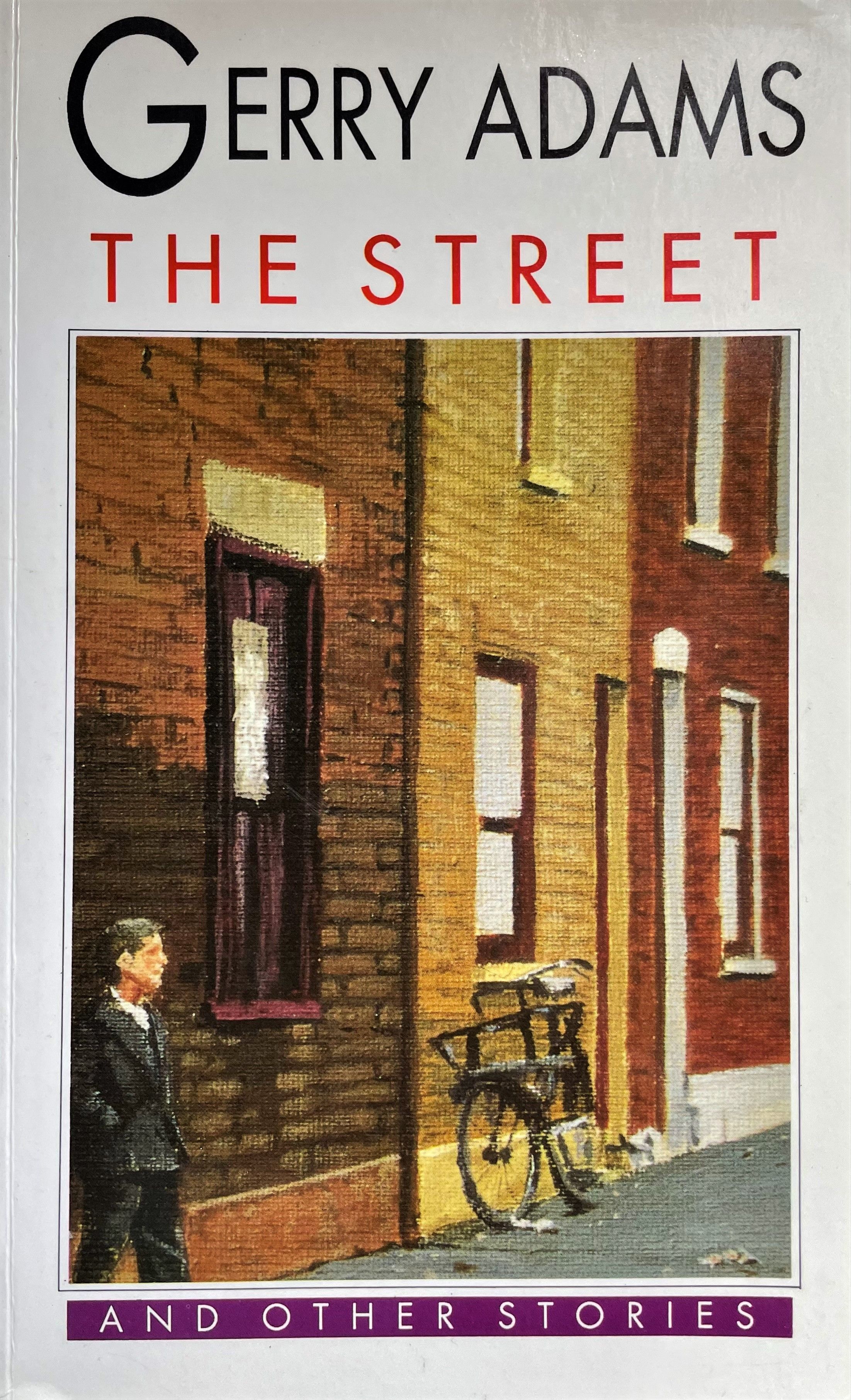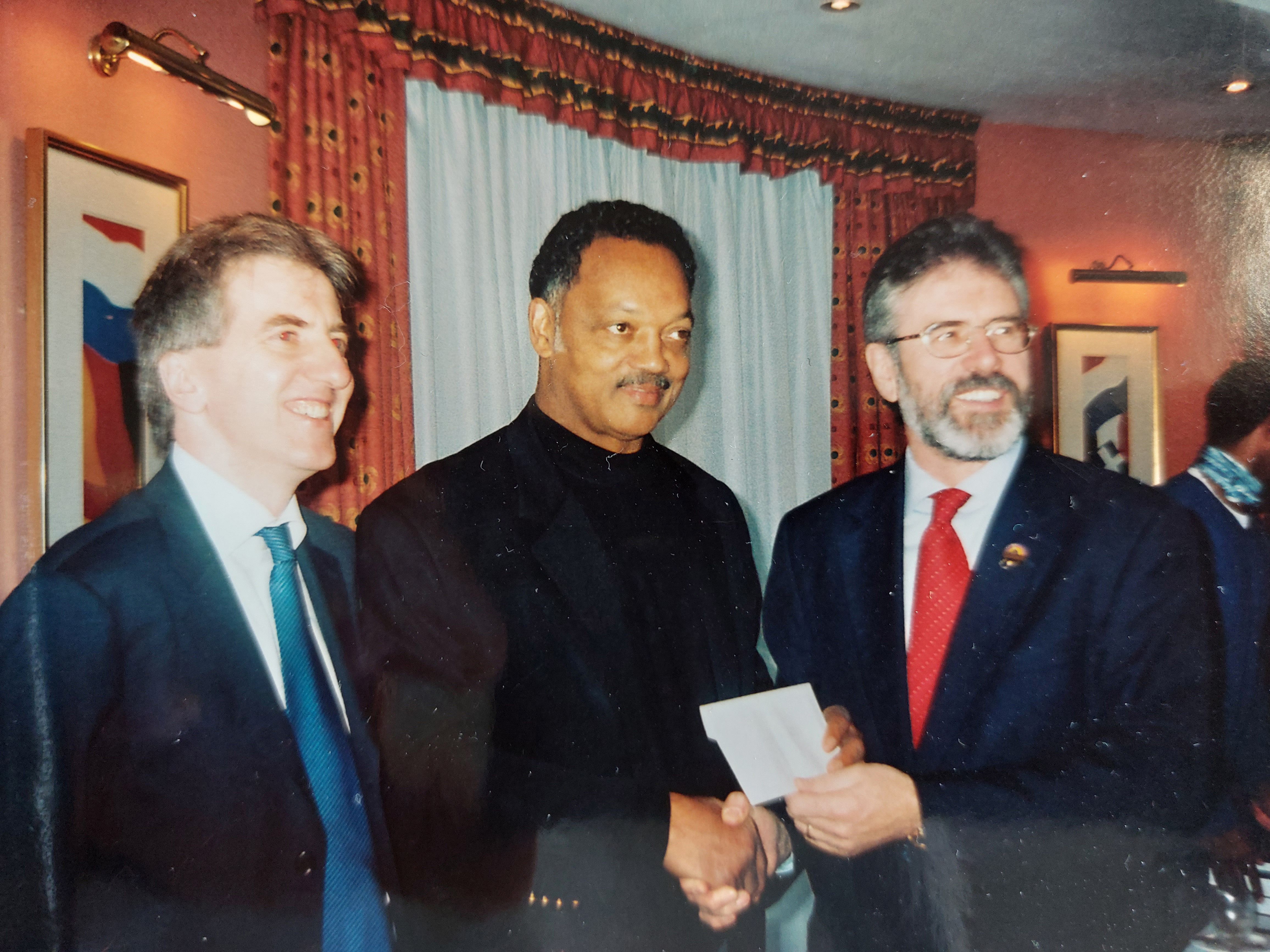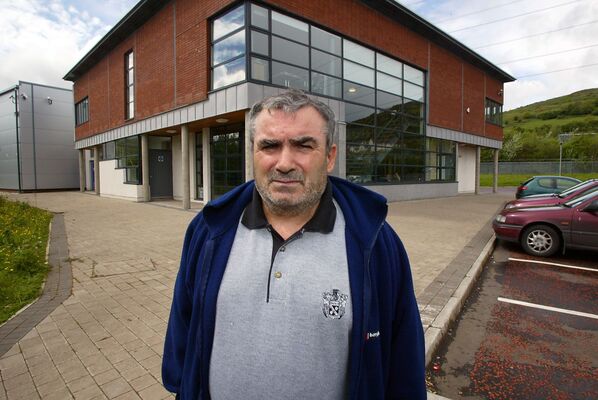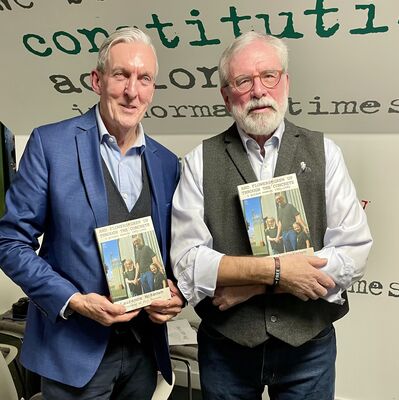REVEREND Jesse Jackson has been a long-standing friend of Ireland and an advocate for equality and peace. He has visited here many times and I have been fortunate to have also had the opportunity to meet him in the USA. During a visit to the North in 2011 Rev Jackson said: “The pattern of communities struggling for freedom, justice and democracy is essentially the same... Where there is no justice, there can be no peace. As Dr King often reminded us, peace is not the absence of noise but the presence of justice.”
On his last visit in June 2017 Rev Jackson opened the newly rebuilt Museum of Free Derry along with Fiachra McGuinness and Fiachra's mother Bernie. He also visited Martin’s grave. Four months later Rev Jackson was diagnosed with Parkinson’s disease.
As well as telling the story of Bloody Sunday, the museum is dedicated to the civil rights movement which drew inspiration from the African-American civil rights struggle in the USA. Jesse Jackson was part of the leadership of that movement and was with Martin Luther King when he was assassinated in April 1968. He is an iconic figure for all of those across the world who struggle for civil rights and social and economic justice.
Rev Jackson, now aged 81, has announced that he was stepping down as head of the Chicago-based Rainbow PUSH Coalition which he founded. Despite this move, he and the Rainbow Coalition have made it clear that his commitment to civil rights is unwavering, and he will now focus on “teaching ministers how to fight for social justice and continue the freedom movement.”
In 2020 Rev Jackson sent a video message to the annual New York-New Belfast conference. He told his Irish and American audience: “We're not going backwards; we're not going to give up. There's a sense of spirituality in our marches.
"I’ve seen him as history will remember him: a man of God and of the people; determined, strategic, and unafraid of the work to redeem the soul of our nation," President Biden said, praising retiring Rev. Jesse Jackson. https://t.co/sdfcjfRUr6
— The Hill (@thehill) July 17, 2023
"It's a healing time, it's hope time. I stand with people of Ireland and Irish Americans and Irish in Ireland. Fred Douglass was there, and I've been there. I look forward to coming to Ireland again. Please let me come back. I love you guys very much.”
Well, we love him too and very much hope that he will come back for a visit. Until then we extend our solidarity to a unique and inspirational leader and to his family.
• Next week a statue of Frederick Douglass is being unveiled in Belfast. More of that then.
New RTÉ Authority have a lot of work to do and a lot to prove
THE recent controversies surrounding RTÉ – problematic payments, a lack of transparency, questionable management, deeply flawed oversight, the blocking of GAA matches to the North, the GAAGo saga, the geo-blocking of the Women’s FIFA World Cup into the North nd much more – will have surprised few who have watched the unacceptable behaviour of governments and RTÉ Executives and management over many decades.
Many will remember the failure of RTÉ over the years to hold successive governments to account, to expose the corruption within the political system or to challenge the golden circles and the elites.
In addition, the partitionist mindset within sections of the RTÉ big shots that have dictated strategy and policy, especially since 1969, led some in that institution to think it was okay to produce a map of Ireland that disappeared the North into the Atlantic and created a new coastline running from Donegal to Louth. Worse, their reflection of life in this part of the island during the decades of conflict frequently bordered on the shameful and misrepresented the lived experience of nationalists and republicans living under military occupation.
Not all RTÉ staff follow that agenda. I have met many fine, fair-minded and courageous journalists and others who do their best to inform and educate listeners and viewers and I love some RTÉ programmes, especially radio programmes.
But Section 31, imposed by a Fianna Fáil government in 1971, was ruthlessly applied, especially after the Labour Minister Conor Cruise O’Brien included Sinn Féin in 1976 among the banned organisations. Songs of a national character – some older than the state – were banned from the airwaves. Sinn Féin activists who were witnesses to non-political events were banned.

Over the years I have had many a run-in with the powers-that-be in RTÉ.
On one occasion in 1993 I published a book of short stories – The Street and Other Stories. My publisher, Steve MacDonogh of Brandon, decided to go for a 20-second radio advertisement on RTÉ. The advert was as follows: “This is Gerry Adams speaking. My new book is called The Street and Other Stories and it’s on sale in good book shops in the 32 counties. Most of the stories are about ordinary people and everyday events and there’s a fair bit of craic in them also. That’s The Street and Other Stories and this is Gerry Adams. I think you might enjoy it. Slán."
RTÉ refused to carry the ad and Steve took the case to the Dublin High Court. The former Labour Party Minister, Conor Cruise O’Brien, testified in defence of banning the advertisement. He claimed that my short stories were thinly disguised propaganda for the IRA. In his submission O’Brien argued that while the advert was not political the opening words would offend and corrupt the Irish public. “I have in mind,” he said, “the opening words ‘This is Gerry Adams speaking.’” The court found in favour of RTÉ and Section 31.
In three years – 2026 – RTÉ will celebrate 100 years as a public service broadcaster. The new Authority and management need to demonstrate that they are in fact and in action a national broadcaster – a real public service broadcaster for all the people of the island of Ireland.
Tony Bennett: Singer, painter, activist
I AM a longtime fan of Tony Bennett. News of his death at the fine age of 96 brings an end to an amazing life and a wonderful singing career lasting over sixty years. In more recent times this column reviewed an album he did with Lady GaGa. Cheek to Cheek is an invigorating stroll through some old favourites like Anything Goes alongside more modern melodies. Tony Bennett was then 94 years of age. He was also suffering from Altzeimer's. You wouldn’t know that from listening to him singing on that album.
Tony Bennett is celebrated for his decades of singing hit songs. But he has also been a lifelong activist, a dedicated pacifist and an advocate for social justice and a cleaner environment. He marched with Martin Luther King in the Selma to Montgomery civil rights demonstration. He is also an acclaimed painter whose work has raised millions for good causes. But it is his singing that most of us enjoy. I have had the good luck to hear him sing live a few times. These were during conferences organised by The Clinton Global Initiative (CGI) in New York. He sang a few songs to round off the evenings.
I recalled one such event in one of these columns once before. No harm to do so again. It was in Carnegie Hall. It has long been my habit, as RG will testify, to slip out off gatherings as quickly as possible. I used to sleg Martin McGuinness for the slowness of his exiting from events. "Getting you out of there is like getting a drunk out off a public house," I would berate him. RG is even worse than that. Me? Once the business is done I vamoose. Lots of times by side doors or back entrances. So it was in Carnegie Hall. The main exits were blocked by slow moving CGI attendees, all of us buoyed up by Tony Bennett’s closing performance. So as is my won't, I exited stage left, out a side door, crooning "I left my heart in Ballymurphy" quietly to myself.
The side door opened up on to West 56th Street. From there it was only a matter of yards to 7th Avenue and the Sheraton Hotel where we were staying. I was so happy at my good luck – at other times I have successfully withdrawn from a gig only to be lost in a maze of corridors or back entries.
Guess what?
Standing on his own, in the corridor leading to outside, was Tony Bennett. I opened the door for him and he walked out as a limo eased by to pick him up. As he passed he saluted me. And RG.
"Goodnight Mr Adams," he said.
"Goodnight Mr Bennett," I replied.
Starstruck.
Ní bheidh a leithéid arís ann.








